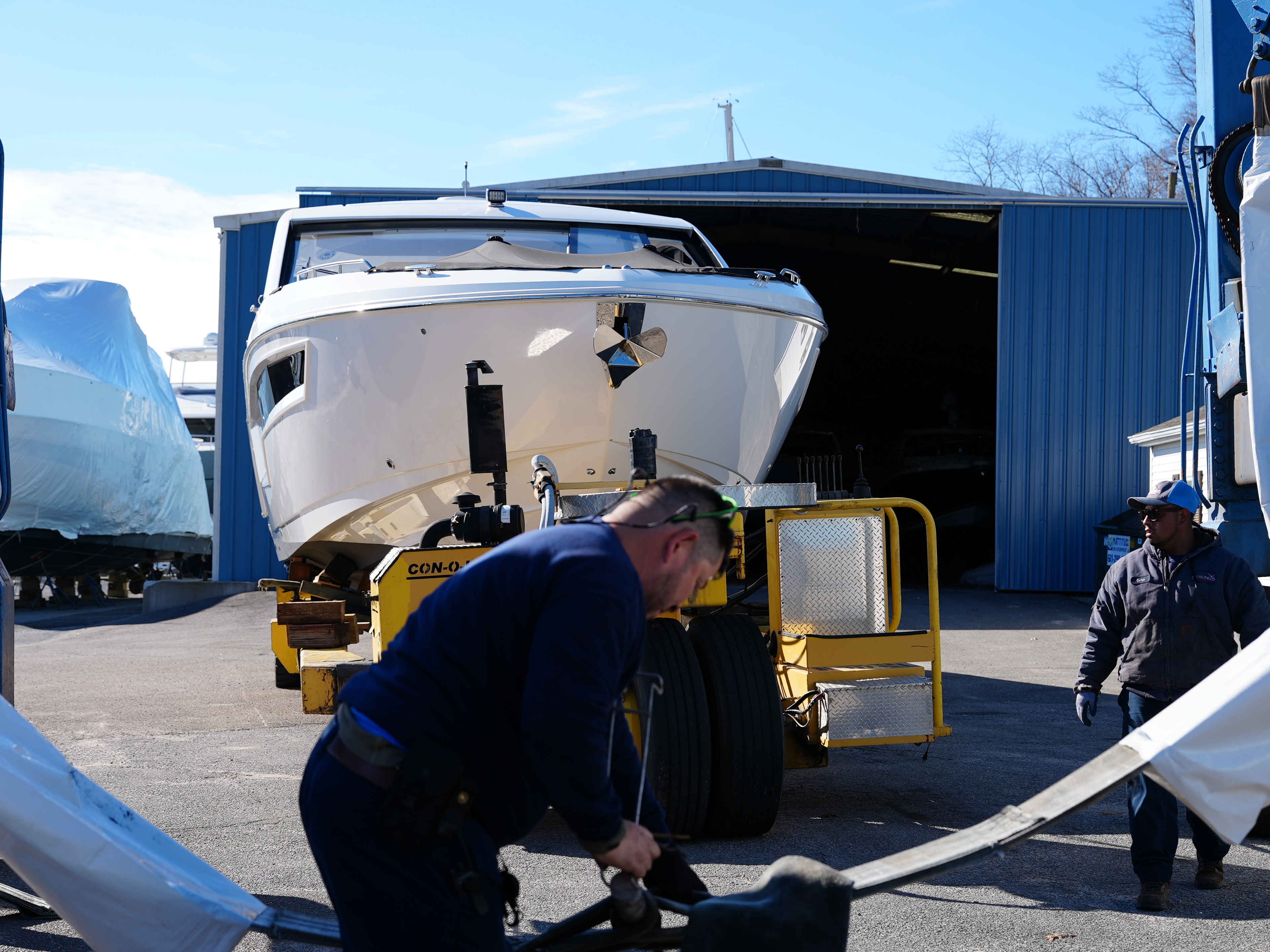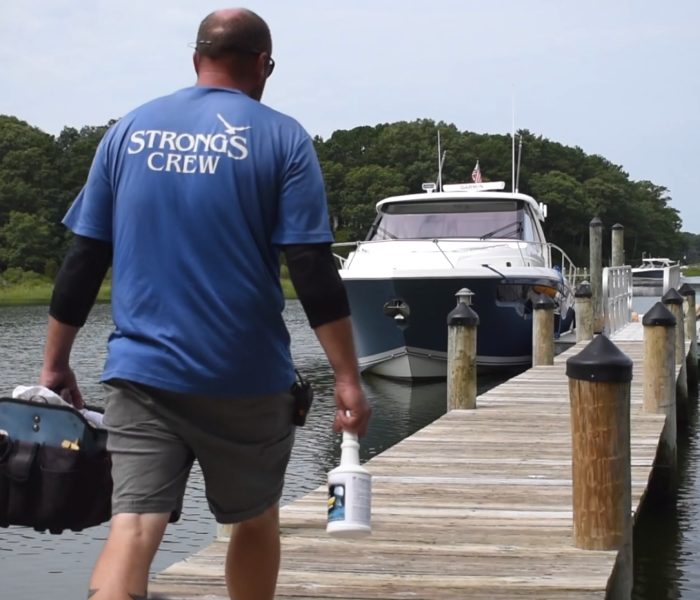How Long Do Boats Last Before They Need Major Repairs

When Should You Get Major Repairs
Understanding a Boat’s Lifespan
If you’re like many boat owners or potential buyers, you’ve probably wondered how long your boat will last before it needs major repairs. Maybe you're feeling a little concerned about the long-term durability of your boat or even wondering if it's a good investment. After all, a boat is a big purchase, and the idea of dealing with costly repairs or maintenance can be stressful.
At Strong’s Marine, we get it. We’ve been in the boat business since 1945, and we’ve helped thousands of customers just like you find the right boat, keep it in excellent condition, and get the most out of their investment. As a fourth-generation family-owned dealership with 12 locations across Long Island, we’re here to offer our expertise and guide you through this process with helpful advice.
In this article, we’ll walk you through the factors that affect a boat's longevity, what signs to look for when repairs may be necessary, and how to keep your boat running smoothly for many years to come. By the end, you’ll have a clear understanding of how long boats last, how to spot major repairs, and what you can do to prevent or minimize them.
So, if you’ve been wondering how long your boat will stay in tip-top shape, what signs to look out for, or when you might face a big repair bill, you’re in the right place. Let’s dive in!
What Factors Affect a Boat’s Longevity?
Boats, like any machine, aren’t immune to wear and tear. However, certain factors can either extend or shorten a boat’s lifespan. Let’s take a look at what impacts how long your boat will last before it requires major repairs.
Construction Material (Fiberglass, Aluminum, Wood)
The materials your boat is made from play a significant role in how long it will last. Most modern boats are built from fiberglass, which is durable and resistant to corrosion. Fiberglass boats can last anywhere from 20 to 50 years, depending on how well they’re cared for.
Aluminum boats, while strong and lightweight, tend to be more susceptible to dings and dents. However, with proper care, they can last for several decades.
Wooden boats, while beautiful, require more attention and maintenance. Wood can rot or warp over time, so these boats might require repairs or refurbishing much sooner than fiberglass or aluminum boats.
Maintenance and Care Routine
The most important factor in extending your boat’s life is regular maintenance. If you’re diligent about checking your boat for signs of wear and performing necessary maintenance tasks, you can avoid major repairs for a long time. This includes things like regularly changing the oil, checking the hull for damage, and making sure your engine is running smoothly.
Freshwater vs. Saltwater Exposure
Saltwater is much harsher on boats than freshwater. If you’re boating in the ocean, your boat will experience more corrosion, rust, and wear from the saltwater environment. However, freshwater boating (lakes and rivers) typically causes less damage to the boat’s exterior and engine. Boats used in saltwater may require more frequent repairs, especially when it comes to the engine and hull.
Frequency and Type of Use
How often you use your boat and the type of activities you do can also impact how long it lasts. For example, a boat used every weekend for leisurely cruises may last much longer than one that’s used for high-speed water sports or commercial purposes. The more you use your boat and the harder you push it, the sooner it might need repairs.
Proper storage and winterization are key to preserving your boat for the long term. Boats left out in the elements, exposed to harsh weather, or improperly stored over the winter are more likely to face major repairs sooner. Taking the time to properly winterize your boat, clean it, and store it in a dry, sheltered area will prevent damage and extend its life.

How Many Hours Is Too Many for a Boat?
Another common question boat owners ask is, “How many hours can I put on my boat before it needs a major repair?” The answer depends on the type of boat and engine you have. However, it’s important to know that boat engines are designed to last for a certain number of hours, after which they may begin to require more frequent maintenance or repairs.
Engine Life Expectancy (Outboard, Inboard, Diesel vs. Gas)
- Outboard Engines: These are commonly used on smaller boats. With proper maintenance, an outboard engine can last anywhere from 1,500 to 3,000 hours. However, saltwater exposure can shorten this lifespan.
- Inboard Engines: These are typically found on larger boats. Inboard engines can last between 3,000 and 5,000 hours, depending on use and maintenance.
- Diesel Engines: Diesel engines are built to last longer than gas engines, often reaching 8,000 to 10,000 hours of operation with regular care.
- Gas Engines: Gas engines have a shorter lifespan than diesel engines, generally lasting around 1,500 to 3,000 hours.
Signs of Wear and Tear on Boat Engines
As your boat ages and the engine racks up hours, you may start to notice certain signs that it needs maintenance or repair. These include unusual noises, difficulty starting, decreased performance, and excessive fuel consumption. If you notice any of these, it’s a good idea to have your boat inspected by a professional before the problem worsens.

What Are the First Major Repairs a Boat Will Need?
As your boat ages, there are a few repairs that tend to pop up first. These repairs are often a sign that your boat is getting older and may need more attention going forward.
Hull and Structural Issues
The hull is the body of the boat, and over time, it can suffer from damage due to collisions, wear, or simply exposure to the elements. Cracks, blisters, or weakened areas in the hull may lead to water infiltration, which can damage the boat’s interior and structure. Repairing these issues can be costly, but catching them early can save you a lot of money in the long run.
Engine Overhauls and Replacements
As we mentioned earlier, engines have a finite lifespan. As your boat ages, you may need to replace or overhaul the engine to keep it running smoothly. Engine repairs or replacements can be one of the more expensive maintenance tasks, but it’s essential to keep the boat running properly.
Electrical System Failures
The electrical system in your boat is complex and can develop issues over time. Problems with the battery, wiring, or fuses are common as boats age, and they can cause a variety of issues, from lights not working to engine failure. Regularly inspecting the electrical system can help you catch problems before they become major repairs.
Fuel System and Plumbing Problems
Boats are equipped with complex fuel systems and plumbing for things like water tanks, toilets, and bilge pumps. Over time, these systems can develop leaks, blockages, or corrosion. Regularly checking and maintaining these systems can help avoid costly repairs and keep your boat in good working order.

How to Extend the Life of Your Boat and Avoid Costly Repairs
Now that you know what factors influence your boat’s lifespan and the types of repairs to watch for, let’s talk about how to extend the life of your boat and avoid major repair costs.
Performing regular maintenance on your boat is the best way to prevent problems from turning into major repairs. This includes tasks like:
- Changing the oil and filters regularly
- Inspecting the hull for damage
- Checking the engine and cooling systems
- Cleaning and treating the fuel system
- Lubricating moving parts
Best Practices for Seasonal Storage
Properly storing your boat when it’s not in use is critical to its longevity. Whether you store it indoors or outdoors, make sure to winterize your boat, clean it thoroughly, and cover it to protect it from the elements.
The Importance of Professional Inspections
Even if you’re good about maintenance, it’s always a good idea to have your boat professionally inspected. A trained technician can spot potential problems before they turn into expensive repairs, ensuring your boat stays in great shape for longer.
Is It Better to Repair or Replace an Aging Boat?
When your boat starts to show its age, you may wonder whether it’s better to invest in major repairs or replace the boat entirely. The decision often depends on the cost of repairs versus the value of the boat.
Cost-Benefit Analysis of Major Repairs
If the cost of repairs is too high relative to the boat’s current value, it may make more sense to sell the boat and buy a new one. However, if the boat still has a lot of life left in it, making repairs can extend its usefulness.
When Upgrading to a New Boat Makes More Sense
If your boat is constantly requiring major repairs and losing its value, it might be time to upgrade to a new one. New boats come with warranties and are less likely to need expensive repairs right away.
Strong’s Marine has an abundance of new & used boats for everyone's lifestyle, view inventory here.

How to Get the Most Years Out of Your Boat
Boats are an investment, and taking care of them is the best way to get the most out of that investment. Regular maintenance, proper storage, and staying on top of repairs will ensure your boat lasts as long as possible. At Strong’s Marine, we’ve been helping boaters like you for over 80 years, and we’re here to offer expert advice and support whenever you need it.
By following these tips and staying proactive with maintenance, you can enjoy your boat for many years to come. Happy boating!
Ready to Make Waves?
Call Strong's Marine at 631-333-0081 to start your on-water adventure today — or shop our available inventory and find your perfect boat!
Need service or maintenance? Our expert team is here to help — just call 631-791-6150.


%20-%202025-10-20T121706.261.png)